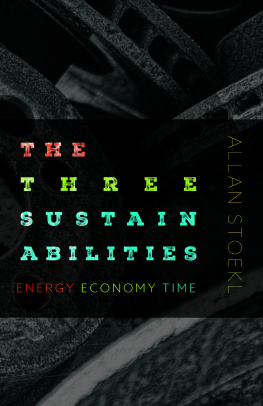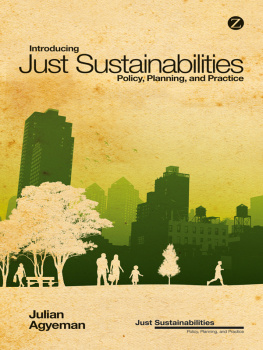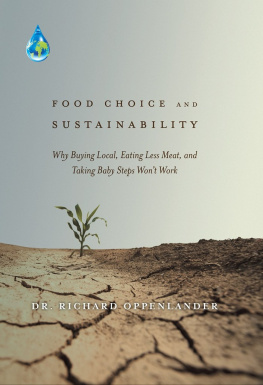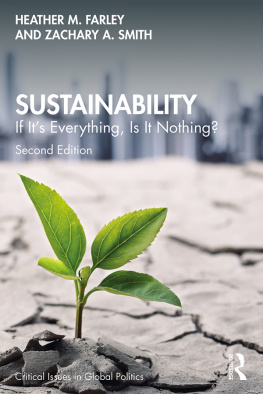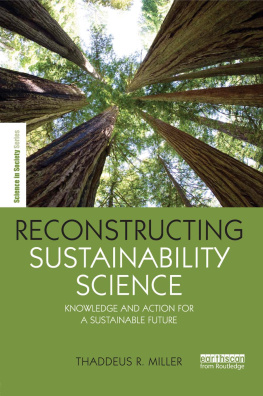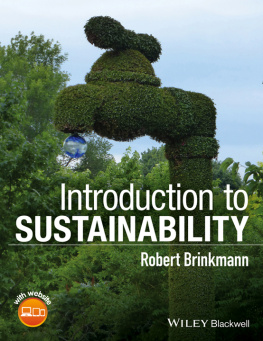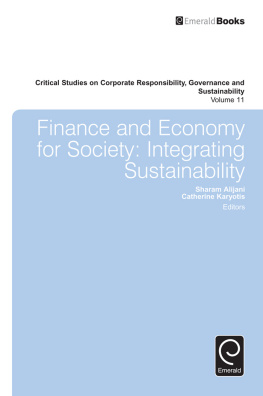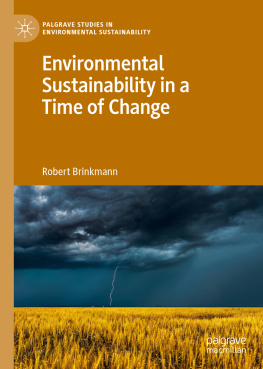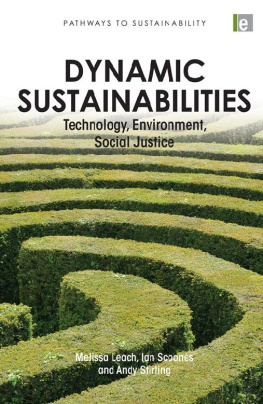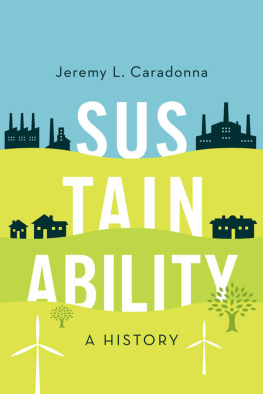
The Three Sustainabilities
The Three Sustainabilities
Energy, Economy, Time
Allan Stoekl

University of Minnesota Press
Minneapolis
London
A portion of a version of chapter 2 was published as Urban Ecology, in Fueling Culture 101: Words for Energy and Environment, ed. Imre Szeman, Jennifer Wenzel, and Patricia Yaeger, 36164 (New York: Fordham University Press, 2017). A portion of chapter 5 was published in a different form as Solar Le Corbusier, in Philosophy and the City, ed. Keith Jacobs and Jeff Malpas, 83102 (London: Rowman and Littlefield, 2019).
Copyright 2021 by the Regents of the University of Minnesota
All rights reserved. No part of this publication may be reproduced, stored in a retrieval system, or transmitted, in any form or by any means, electronic, mechanical, photocopying, recording, or otherwise, without the prior written permission of the publisher.
Published by the University of Minnesota Press
111 Third Avenue South, Suite 290
Minneapolis, MN 554012520
http://www.upress.umn.edu
ISBN 978-1-4529-6198-9
Library of Congress record available at https://lccn.loc.gov/2021023176.
The University of Minnesota is an equal-opportunity educator and employer.
Contents
Sustainability, n. b.spec. The property of being environmentally sustainable; the degree to which a process or enterprise is able to be maintained or continued while avoiding the long-term depletion of natural resources.
Oxford English Dictionary
Sustainabilitywhy write a book about it? Hasnt it been discredited? Or isnt its meaning self-evident? Isnt it just shorthand for some impossible capitalist future? Or what everybody dreams of, and everybody knows will never happen? The ecological version of utopia, a perfect space of fulfillmentin other words, no-space? Or what we have to attain in order to survive? But who is we? And what is survival? Shorthand for doing nothing of any significance and feeling good about it? Just a word?
Or is working toward sustainability the last hope for the planet? But whose planet? And whose sustainability? Rocks? Iron ore? Animals? People? Rich first-world white people? Everybody? Is it a word we need without knowing why we really need it?
Stacy Alaimo pronounces the most severe evaluation of sustainability. Alaimo sees the word as implying that we can fix the world in such a way as to ensure it will keep providing for us. She concludes: Rather than approaching this world as a warehouse of inert things we wish to pile up for later use, we must hold ourselves accountable to a materiality that is never merely an external, blank or inert space but the active, emergent substance of ourselves and others. So forget sustainability.
Im certainly in agreement with at least a variant of this position, as I hope the final chapters of this book will demonstrate. But is sustainability itself, the word, or for that matter variants and euphemisms, so easily jettisoned? Alaimo herself doesnt seem to think so; after all, earlier in the book, she writes: I live in the belly of one of the most ravenous, leastsustainable beastsnot just the United States, but Texas (95, emphasis added). True, she may be using the term (or its adjectival variant) here ironically, but the point is, ironic or not, she still makes use of it. Texas is indeed dependent on fossil fuels (like the rest of the developed world), both their extraction and their refining; life is famously lived large there (like everywhere else, but supposedly a bit more so), with plenty of driving, shopping, driving to shopping, and so on. That is to say, Alaimo uses the word because, presumably, there is nothing else that can do its work. It or some variant of it is useful, and will continue to be useful. But what is, in the end, its work?
I would like to argue that sustainability still has a role to play in discourse, in our political unconscious. The word will sustain itself, if only as a recurrence of ever-larger or more contestable or ironic meanings, or as a place marker, the x of what cannot be definitively formulated or eliminated. Because, most fundamentally, not just the human is sustained, or sustains itself. Sustainability in the larger sense is about time, and objects (living and inanimate): all the aspects of how objects are in time, and passor do not passaway. With or without us, depending on how we imagine both them and ourselves (as humans). The fact of their temporalitytheir genesis, their stubbornness, their oblivion, their residueand our role, or lack of role, in that temporality (and hence the passing of ourselves) confronts us on a daily basis. Objects in timeand the moral and physical conundrums that that movement, or lack of movement, impliesis the subject of this book. And so too is energy transformation, conservation, and lossbut energy is precisely not an object (though known only through objects: fuel, heated things, movement of things, electrical discharge, etc.).
Sustainability (the word) will be sustainable, I think, following another, related definition of the word: sustainable, adj.... 2. Capable of being upheld or defended as valid, correct, or true (OED). But what is truth in relation to sustainability?
The larger objection to sustainability might be that it has become nothing more than a clich. But as Jean Paulhan reminds us in his fundamental book The Flowers of Tarbes (1940), all we have in language are clichs, words that are ground down through overuse. There is no escaping them. To escape clichs is to escape language itself, by trying to devise ones own pristine and ultimately private language. The problem is that this new language itself then becomes a clich as soon as it goes out into the world. (Paulhans example is the stylistic experimentation of the surrealists.) True, language is policed, in the endless effort to weed out hurtful or insulting words. But worn-out words? They are all we have, and the true challenge is to master rhetoricanother thing we cannot escapein order to effectively express ourselves, using the figures of speech, words, and grammar that have been handed down to us, for good or ill. When we are attentive to what we have, the elements of language at our disposal are not worn out, but capable of expressing what is worth expressing. Thats the ideal, anyway...
Sustainability in the context of environmentalism and resource conservation (another word) is often defined through three pillars: it entails an economic model, a political or social one, and finally an ecological or environmental model. All three pillars work together, in other words, to further certain values: social justice (equitable distribution, meeting the needs of the present), prosperity (development, steady state [nongrowth]), and the indefinite future (of human generations).
From the perspective of traditional ethics, one cannot argue with this, as long as the human remains the primary subject not only of social history but of environmental history. Nevertheless, I would like, very briefly, to examine each of these pillars with reference to a book, or books, that could be said to convey some of the underlying ideas, or ideals, behind it. I think doing this can lead us to understand why these models might need to be supplemented, so to speak, with a few more scenarios, ones that move out at orthogonal angles from established doctrine. What, after all, happens when we consider sustaining stuff from the point of view, if such a thing could be posited, of the stuff (living, inanimate), which is not necessarily concerned with a task of sustaining humans? And what can we say about humans and their (self-)sustainability after we consider their position not as an essential one in relation to everything else, but instead as tangential, marginal, obscure?
Next page
